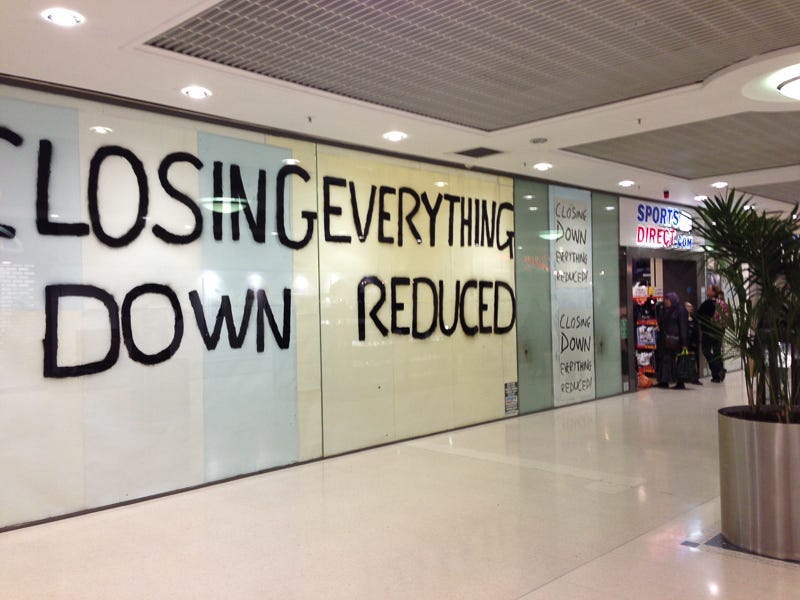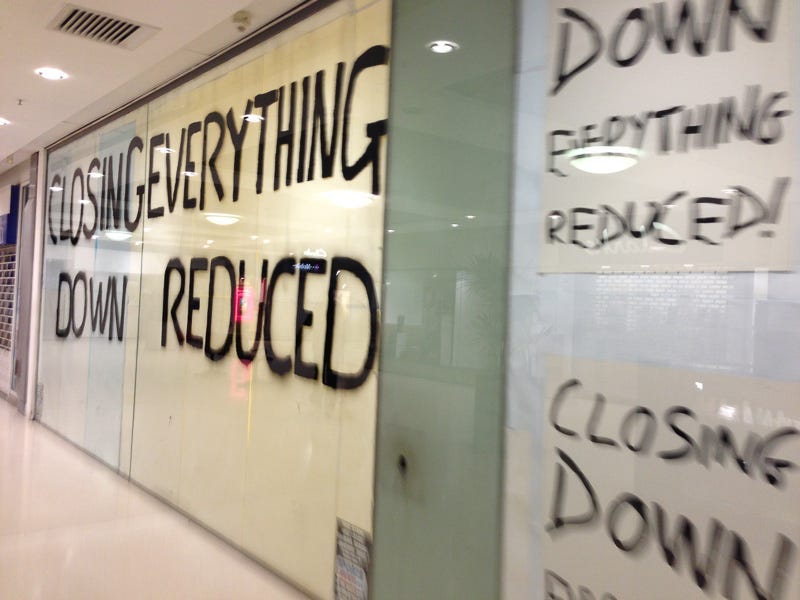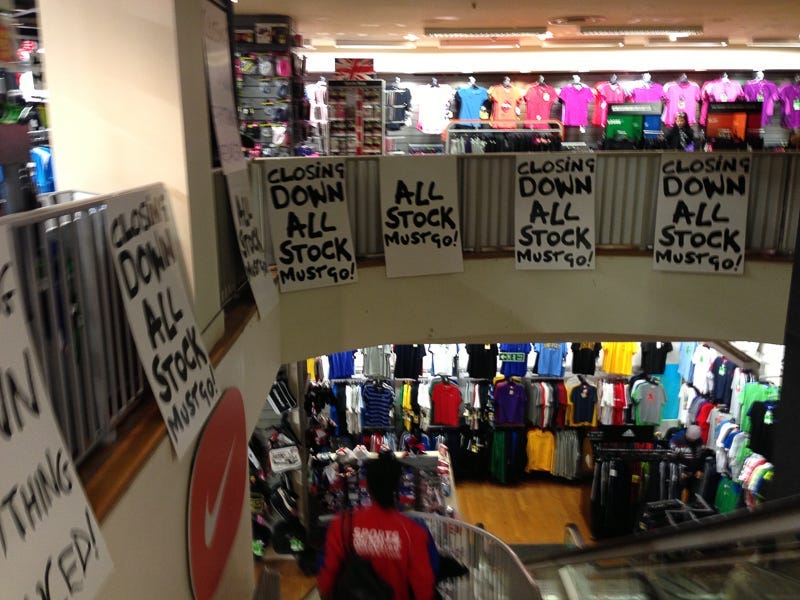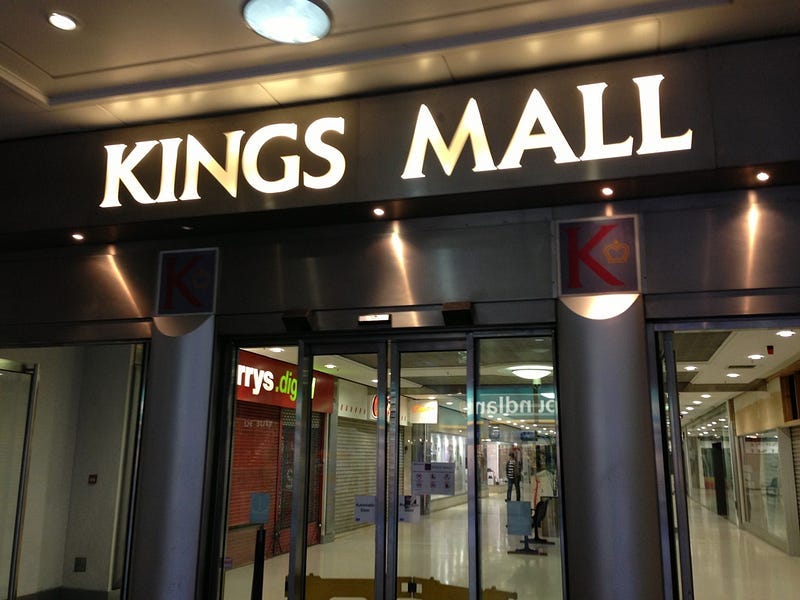When is a sale not a sale?
Take a look at the picture below. It wouldn’t be unreasonable to assume that the shop in question, which is the Sports Direct branch in Hammersmith’s Kings Mall shopping centre*, is closing, and that there’s a ‘closing-down sale’ going on. But is that true?
I took the picture and the ones below in mid-October 2012, and the shop was still going strong in December 2012, but by then a note had been taped to the windows saying that it was going to close in January 2013. I went back today (7 January) and it was finally closed, with everything gone from inside.
But the closing-down sale didn’t exist. I went in to look at some cricket gear for next season, but the prices didn’t seem much different to their normal levels. If you’ve patronised Sports Direct before you’ll know that it specialises in selling cheap sport gear at a discount. The company, owned by Newcastle United FC owner Mike Ashley, also owns a bunch of brand names, including Dunlop, Slazenger, Kangol, Lonsdale and Donnay (there’s a handy list on the group’s corporate website). So while you might see those names on sale elsewhere, the chances are they’ll always be cheaper at Sports Direct where for obvious reasons there’s a permanent sale.
I checked online and sure enough the in-store ‘closing down’ prices were exactly the same as those on the website. I asked one of the shop assistants what the closing-down discount was, and he laughed and said that there wasn’t one. I asked him why there were posters all over the place advertising what appeared to be an extra sale, and he pointed out that the posters say ‘all stock reduced’ and all the stock had been reduced, just to the usual ‘discount’ price from the ‘full’ price. If you look carefully at the photos, you’ll notice that the wording is designed to never explicitly link the two phrases, “closing down” and “everything reduced”. They appear on the same posters, true, but it never says there’s a “closing-down sale”. He also pointed out that there’d be no need to have a closing-down sale because all the stock could just be put in a van and sent to another branch.
Interestingly, Sports Direct has some form in this area: in May 2008 the company was told off by the Office of Fair Trading for running misleading ‘closing down’ sales, and it signed an undertaking not to mislead customers in future:
The OFT announced yesterday that it had received complaints from members of the public that Sports Direct had displayed “closing down” adverts for months at a time. The stores that carried the notices, however, never closed down or were only temporarily shuttered.
The watchdog investigated the allegations and concluded that Sports Direct had created the incorrect impression that the shops were closing permanently. The OFT said this could make consumers believe they had little time to buy goods or that only limited stock was available.
The complaints related to the firm’s Sports World chain of stores, as well as its Hargreaves and Gilesports operations. Sports Direct’s chief executive, Dave Forsey, and its finance director, Bob Mellors, signed the OFT undertakings on behalf of the company, which is 70% controlled by the billionaire Newcastle United owner Mike Ashley.
That’s slightly different to what’s going on here, which is really a bit of clever marketing — make sure the words ‘reduced’ and ‘closing’ appear close to each other, and your customers’ minds will do the rest for you. We’re so used to the idea of closing-down sales that we’ll assume that’s what’s going on. And the psychology of discounts and sales means that even the perception of a closing-down sale is enough. Our brains are primed to go in there and bargain-hunt, even though the bargains may be exactly the same as they’ve always been.
*Let’s not get into the missing apostrophe in the name of the shopping centre.







